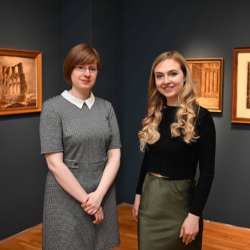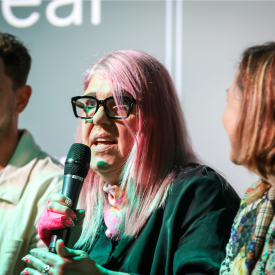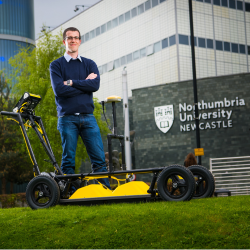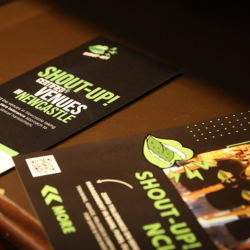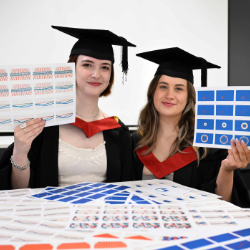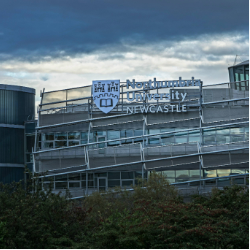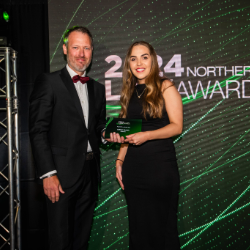Head of Department reverse mentored by a postgraduate student – a
conversation reflecting on unexpected lessons learned and benefits.
Kay Anyachor and Monika Foster
Introduction
Reverse mentoring originates in industry and can be
a very powerful tool for senior leaders to upskill and to get an insight into
the skillset and experiences of junior staff. In Higher Education, reverse
mentoring can be beneficial for staff and students to facilitate insights in
institutional knowledge in a growth-focused relationship.
Professor Monika Foster joined Northumbria
University in January 2023 as Head of Department of Marketing, Operations and
Systems in the Faculty of Business and Law. She had wanted to gain some
implicit institutional knowledge, how students interact with the courses and
the university to help develop her own skills and leadership. As there has been
a significant growth in the international postgraduate student numbers in the
Department, Monika was especially interested to learn more about their
experience. Building on the earlier experience of being reverse mentored,
Professor Foster, has approached postgraduate students to reverse mentor her.
Kay Anyachor, who is a
Postgraduate student on MSc Global Logistics Operations and Supply Chain Management,
has stepped forward to mentor Monika. Monika and Kay have worked together on reverse
mentoring since February 2023. Here they share their experience, the unexpected
benefits they achieved, and the lessons learned, which might be useful for
other staff and students wishing to try reverse mentoring.
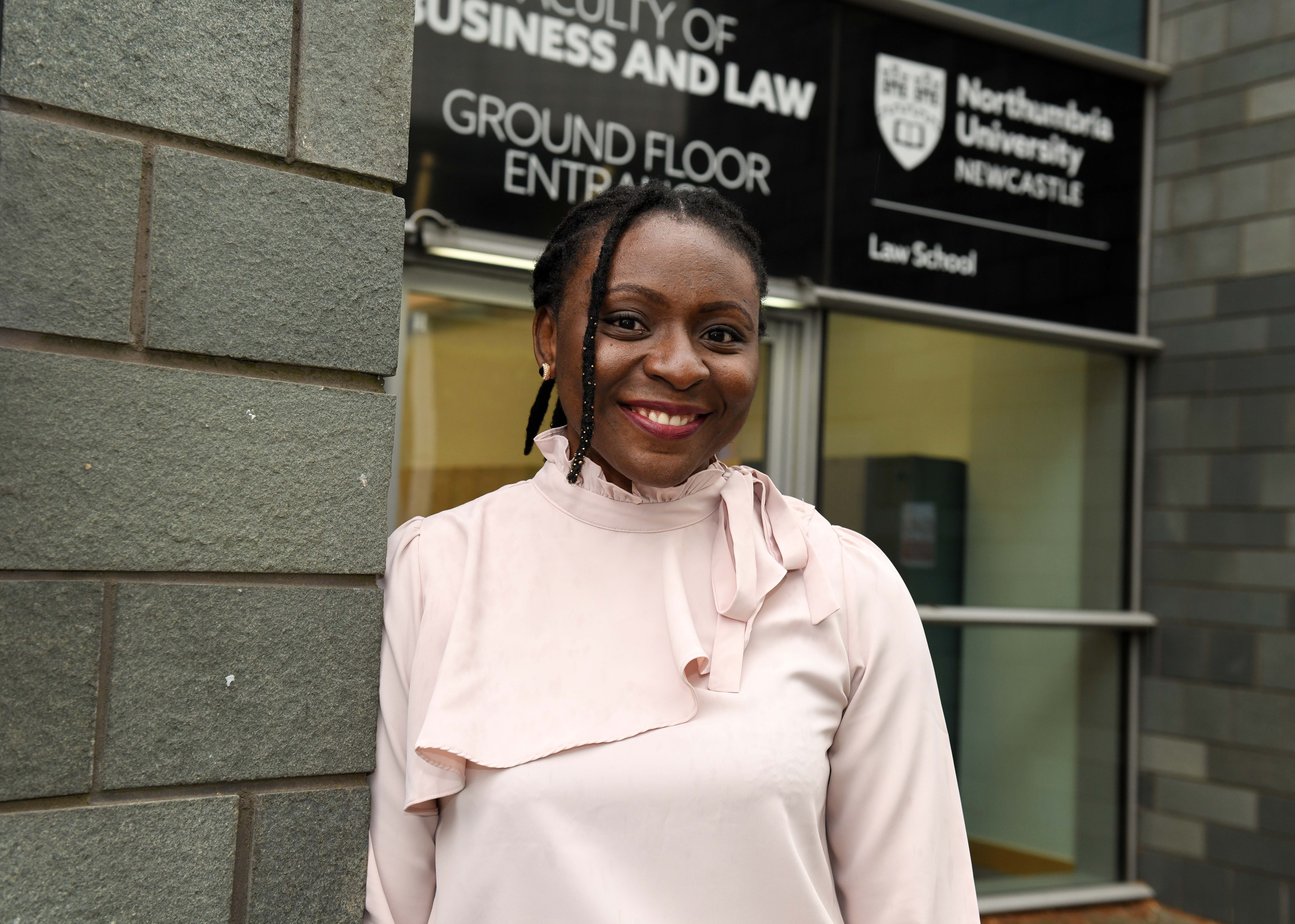
(Kay) When you first approached the students to
reverse mentor you, what did you want to learn or develop as a leader?
As a new Colleague in the University, I have been
learning quickly about the Department, the Faculty and the University from many
different Colleagues and sources. As a Head of Department, I was also keen to get
to know the students who study the courses in our Department. We have such
diverse student population, especially our postgraduate students, so I’ve
thought it would be useful to get to know their perspective, why they decided
to study with us, how they enjoy their study, but also, selfishly, I was
looking to pick up some ‘insider knowledge’ from the students too. When I
joined in early 2023, our postgraduate students were nearly half way through
their study by then, so had a good amount of institutional knowledge I was
willing to learn from.
(Monika) Thank you for stepping forward to be my mentor,
Kay. What were your expectations of reverse mentoring?
Going into that first meeting, I was not sure what
to expect. I was a bit nervous to be asked to mentor a senior leader in the
university, but I was certain that whatever the relationship evolved into, I
was ready to give my best to it. I was sure it was going to be an excellent
learning opportunity for me.
(Kay) What do you think you’ve learned from reverse
mentoring? Have there been any unexpected lessons from this cohort of reverse
mentoring?
This is my 3rd experience of reverse
mentoring with students. The first year I took part in reverse mentoring, I was
reverse mentored by a final year, international undergraduate student. Last year
I was reverse mentored by two first year, home students. This year I have been
very fortunate to be reverse mentored by you, a mature, international
postgraduate student and this has been a truly inspirational experience, thank
you!
I planned to find out some institutional knowledge
such as how postgraduate students approach learning on our courses, their
expectations and their takeaways from the courses, and it was great to learn
about these. I also really enjoyed learning how students engage with the study
on campus, what else they do on campus, at the university, in the city. What
was unexpected for me is a huge appreciation how much knowledge and experience
a mature student brings with them to study on our postgraduate courses. I also
learned so much about the Nigerian culture and the similarities and differences
between the UK and Nigerian academic culture, as well as the insights into what
make Nigerian students engage well in the class, what they find odd (having to
keep quiet!) and how much they enjoy being lively and noisy.
(Monika) Although we started by you mentoring me, I think we have
achieved a good balance of some benefits to you too. Reciprocal mentoring is
when both parties benefit. What do you think are the benefits for you?
The main benefit to me has been in demystifying
university leadership. I have gained a better appreciation for the work it must
take to keep this entire University organism alive. You have shared with me
some of your personal values that has helped you achieve success in academia
and business leadership, especially as a female, international leader. As
someone who is interested in working in business operations, this has been an
invaluable interaction for me.
(Monika) That’s great, I am glad you found the experience helpful for
your own development. What skills and knowledge can you take away from this
relationship? Was there any unexpected learning for you, too?
The first skill I have learned is obviously about
reverse mentoring. I really enjoyed being a mentor, asking questions,
challenging you to think of the answers and to reflect on what you do as a
leader. The reverse mentoring has been a conversation, a learning experience
for both of us. I have been able to appreciate the work you do, and I see its
application in other business areas apart from academia. As a retail business manager,
I always found that there was a disconnect between the senior management team
and the staff on the shop floors and I think that the idea of reverse mentoring
is essential to expose the senior leaders to an honest assessment of
operational processes from the people responsible for implementation.
Secondly, this experience has improved my
confidence levels with research – this was unexpected for me. I find that this
interaction has piqued my interest in asking questions and trying to get the
answers in a format that can be documented and replicated. Learning about your
previous research made me realise that research could be as simple as seeking
to understand everyday phenomenon especially in business operations and it will
still be enough. I feel confident that I will do well with my dissertation.
And on a personal level, you have taught me to put
myself forward for opportunities without fear of rejection. I felt valued and
happy I could share my knowledge with a leader in the university.
(Kay) In terms of your leadership of the
Department, what did you learn specifically from our reverse mentoring and how
will you take it further?
As mentioned earlier, I gained many insights, an
institutional knowledge from the student’s perspective, which I’d like to use to
further enhance our courses and to engage with our students, especially international students. We attract
growing numbers of diverse international students on pir postgraduate courses
and wish to make them relevant and connected to the students. It is very
important that we reflect our students’ international perspectives in the
course content such as on MSc Global Logistics, Operations and Supply Chain
Management. I would like to explore how we build in space in the course
curriculum for the students to share their expertise, experience and knowledge
which they bring with them. Perhaps we can also look to create a learning community
for our postgraduate students (home and international) on campus to support a
sense of belonging and to celebrate different cultures and backgrounds.
On a personal level, as a leader, I challenge
myself to be a mentee and to learn new perspectives. I enjoyed our
conversations where you asked me about my leadership, to explain my plans, my
research, how they complement each other. At the time, I was developing my Female
Leadership guest lectures and by discussing my work with you, I was able to see
clearly where my strengths where, what I needed to improve, which was very
helpful for me as I was delivering them to different audiences of international
students.
(Kay) What advice would you have for other senior
leaders who may consider the reverse mentoring approach to student engagement?
Give it a go! It takes planning and you need to be
clear about your own goals but the learning from this is phenomenal. Start
reverse mentoring with an open mind, as there might be some unexpected
knowledge and benefits you might get as you work with the student. You never
know what you might learn!
Written by Kay Anyachor student on MSc Global
Logistics, Operations and Supply Chain Management and Professor Monika
Foster Head of MOS Department, Faculty of Business and Law
To find out more about Reverse Mentoring read ReverseMentoring: Untapped Resource in the Academy? byLibby Springer







